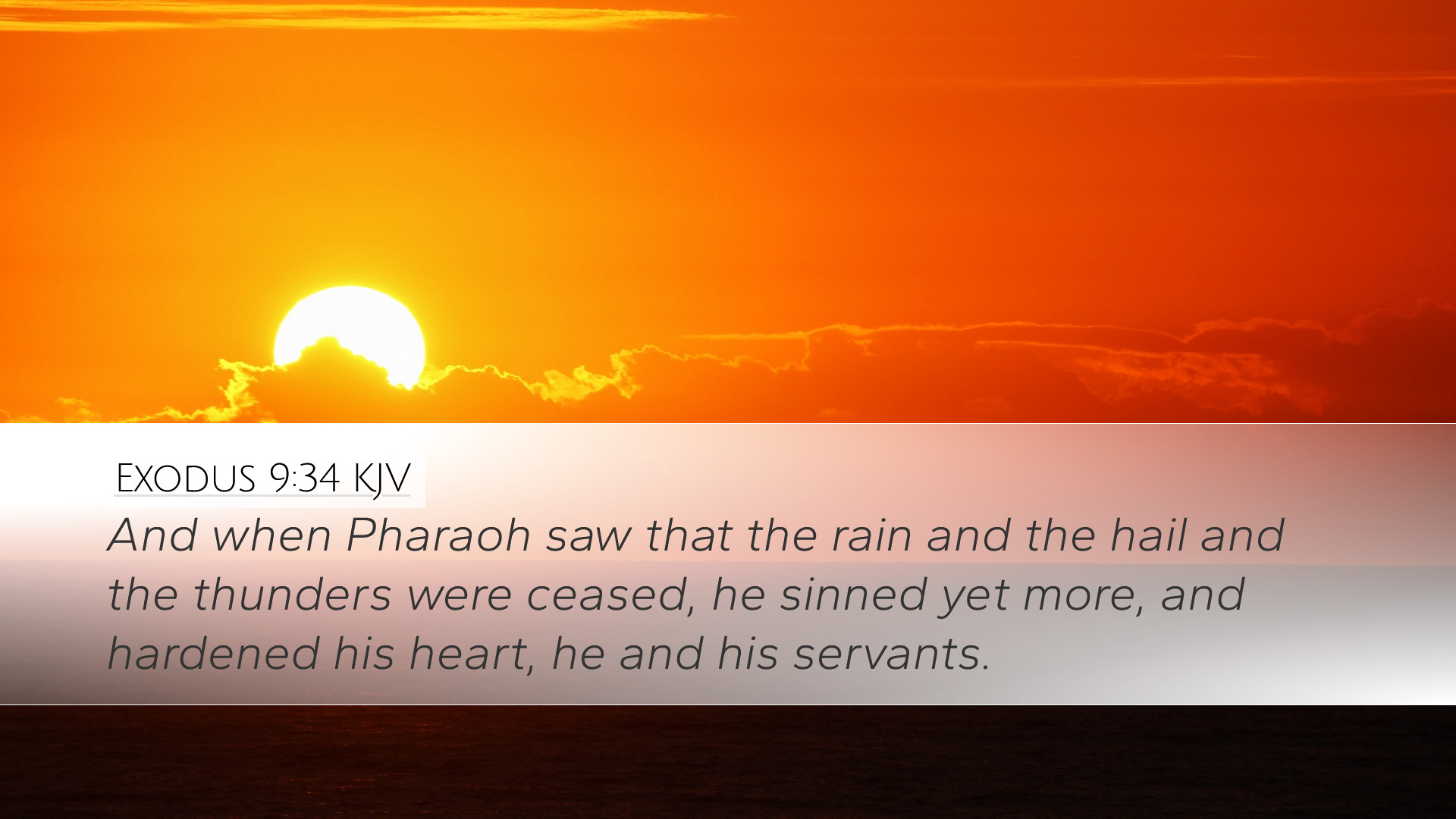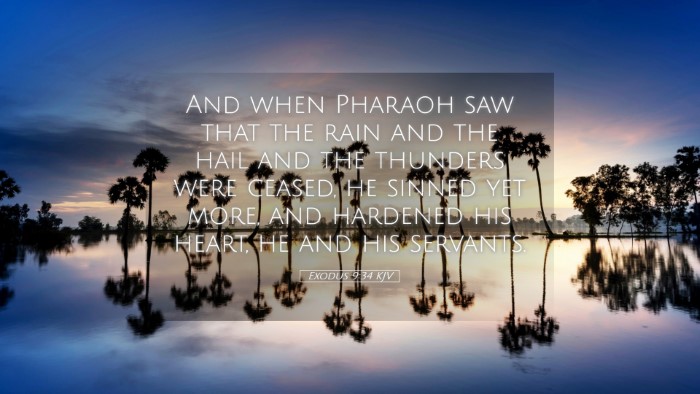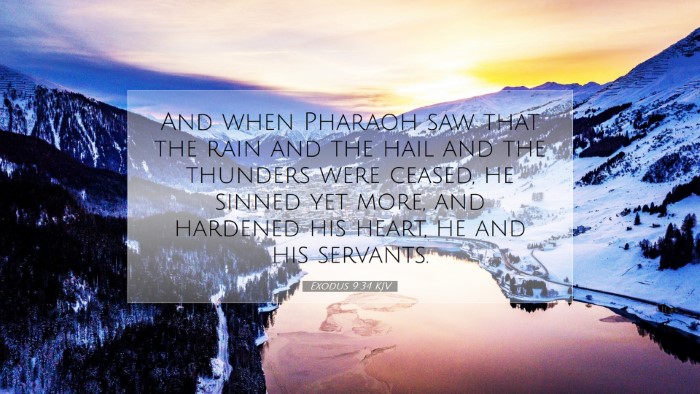Commentary on Exodus 9:34
Exodus 9:34 states: “And when Pharaoh saw that the rain and the hail and the thunders were ceased, he sinned yet more, and hardened his heart, he and his servants.” This verse captures a pivotal moment in the narrative of the plagues upon Egypt, shedding light on the character of Pharaoh and the theological implications of hardening one's heart against God's will.
Context and Background
The context of this verse is set within the framework of the ten plagues God inflicted upon Egypt to compel Pharaoh to release the Israelites from bondage. The specific plague referenced here, involving hail mixed with fire, exemplifies divine judgment, signifying not only the power of God but also the consequences of disobedience.
Theological Implications
- Human Rebellion: Pharaoh’s reaction illustrates the persistent nature of human rebellion against God. Despite witnessing immense power through the plagues, his response was not one of repentance but defiance.
- Hardening of Hearts: The act of hardening one’s heart is a significant motif in Exodus. This verse highlights the danger of repeated exposure to God's miracles and the consequent hardening of the heart, which can lead to further wickedness.
- Divine Sovereignty: God's sovereignty is highlighted as He permits Pharaoh's heart to be hardened, reinforcing the idea that divine judgment often comes as a result of human choices.
Commentary Synergy
Matthew Henry's Insight
Matthew Henry comments on this passage, emphasizing that Pharaoh's reaction demonstrates the blindness of sin. Henry notes that even after the cessation of the storm, Pharaoh, rather than recognizing God's authority, only intensified his sinfulness. This reflects a common human tendency to return to sin once the immediate pressure is relieved. Henry urges readers to be cautious of such patterns in their own lives.
Albert Barnes' Perspective
Albert Barnes provides a detailed look into the psychological dynamics at play in Pharaoh's heart. He points out that Pharaoh’s hardening is indicative of God’s judicial act to reinforce Pharaoh’s will, illustrating that continued disobedience can lead to a seared conscience. Barnes argues that this passage serves as a stark warning against the dangers of disregarding divine warnings and persisting in sin.
Adam Clarke's Analysis
Adam Clarke comments on the significance of the mighty acts of God and how they serve to reveal the character of individuals. He argues that Pharaoh, in witnessing the overwhelming evidence of God’s power, ought to have repented, yet chose to harden his heart instead. Clarke elaborates on how such responses to divine intervention reveal a propensity for pride and a refusal to submit to authority, which can manifest in broad swathes of society, warning scholars and leaders to be vigilant against similar attitudes.
Application for Pastors and Theologians
This passage serves as an essential point of reflection for pastors and theologians alike. The themes of rebellion, hardening hearts, and the consequences of sin are timeless and relevant in today's context. Leaders are reminded to cultivate humility in themselves and their congregations, emphasizing the need for genuine repentance and responsiveness to God's workings in their lives.
Conclusion
In conclusion, Exodus 9:34 offers profound insights into human nature, divine judgment, and the dynamics of repentance and rebellion. Engaging with the interpretations of notable commentators like Matthew Henry, Albert Barnes, and Adam Clarke enriches our understanding, urging us to reflect on our own hearts. As students of the Word, we must remain vigilant against the dangers of a hardened heart, a lesson that echoes through the ages.


